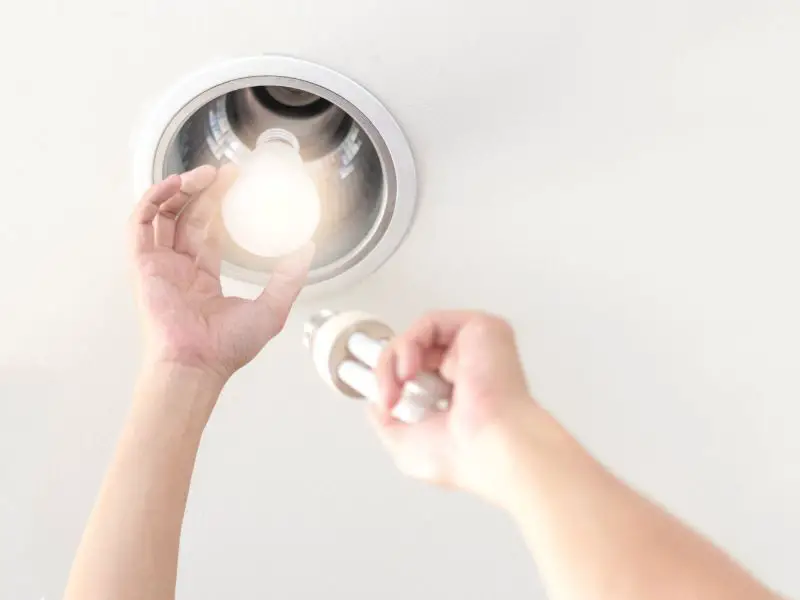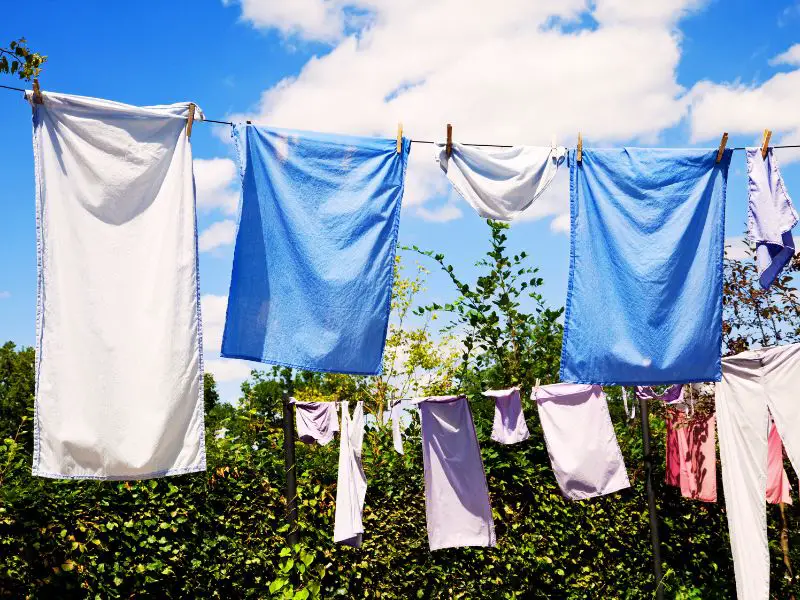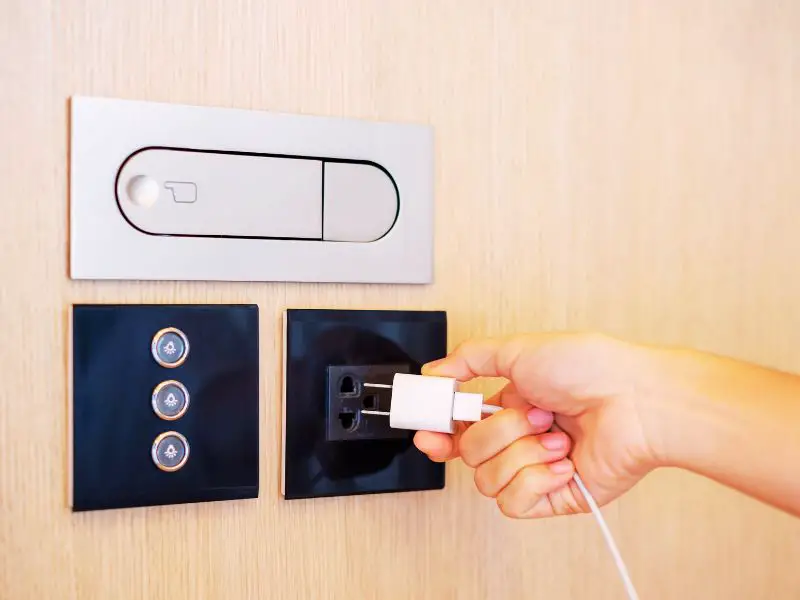Saving energy at home is good for the environment and can save you money on energy bills. Simple changes to your daily routines, like turning off the lights when you don’t use a room or unplugging electronics when you’re not using them, can make a huge difference. Investing in appliances and technology that use less energy can also save you money in the long run.
In this guide, we’ll talk about why energy saving is essential and give tips on how to save energy at home, from simple changes to upgrades that don’t cost much.

What is Energy Conservation?
Energy conservation is the deliberate choice to use less energy. But is it that simple? Yes, absolutely! It is not only straightforward but also highly useful. When we reduce our energy use, we delay the depletion of fossil fuels and contribute to improving the environment. Ultimately, we save money in the process. Let’s look more closely.
Why is Energy Conservation Important?
Currently, the United States’ main energy sources are fossil fuels such as oil, coal, and natural gas. However, fossil fuels are nonrenewable resources formed millions of years ago deep below the Earth’s crust. We use these natural resources at such a fast pace that they may soon become depleted.
Moreover, fossil fuels have a harmful influence on the ecosystem. Coal is the most polluting substance in the United States. Carbon dioxide emissions from its combustion contribute to global warming. In addition, coal combustion creates acid rain, smog, and soot. It also produces harmful air pollutants, which have been connected to congenital defects, cancer, and other severe health disorders.
Here are the key benefits of conserving energy at home;
- Help the environment – Limiting your energy consumption reduces your carbon footprint. The longer we wait to make meaningful changes, the more dangerous global warming and climate change become to our everyday lives.
- Stop the depletion of fossil fuels – Saving power at home can aid in cutting down the demand for fossil fuels by lessening the necessity of energy being created. This has the potential to lead to a decrease in the exploitation of fossil fuels for producing electricity and heating. Moreover, applying energy-efficient appliances and procedures can also aid in reducing emissions and helping to slow global warming.
- Save more money – Saving energy at home can save you cash in numerous ways. Utilizing energy-saving devices and systems can help reduce your energy bills by decreasing the quantity of energy you utilize. Plus, sealing and insulating your abode effectively can help keep the warmth in throughout winter and chill air in amid summer, cutting back on the need for heating and cooling. You can also cut costs by making use of natural light rather than artificial light and disconnecting gadgets when they are idle. All these strides may assist you in preserving money on your energy bills over time.
How Home Saving Help Prolong the Depletion of Fossil Fuels
Even though we depend heavily on fossil fuels as our primary energy source, we will eventually run out of them. As such, we must start lowering our energy use right once. The slower we use nonrenewable resources, the more time we have to discover alternative energy sources before we run out of fossil fuels.
Habitual Tips That Save Energy at Home
Are you interested in saving money on your energy bills while also helping to preserve the environment? Thankfully, there are some easy ways to save energy around your home.
Here are our top five tips for saving energy and money at home:
1. Replace Your Lightbulbs With LED Lights
LED light bulbs use up to 85% less energy than incandescent bulbs, which means you’ll save considerable energy (and money!) over time.

2. Use Smart Technology in Your Home
Investing in a smart thermostat or other connected devices will help you monitor and manage your household’s electricity consumption more effectively. This can reduce unnecessary energy usage, giving you more control over your bills while ensuring that all necessary appliances work efficiently.
3. Mindful Appliance Usage
Turn off all appliances when not being used and unplug them if they don’t need to stay powered on constantly (such as cell phone chargers or other electronics). Minimizing the use of high-energy-consuming devices such as air conditioners or heaters can also make a big difference in reducing your electricity consumption.
4. Hang Dry Your Clothes Instead of Using a Dryer
Your clothes dryer is one of the most expensive appliances regarding electricity consumption — so why not skip using it whenever possible? Hanging clothes outdoors or installing an indoor drying rack is a quick fix that will save you both time and money!

5. Utilize Solar Energy Whenever Possible
Harnessing solar power is an increasingly popular way to ensure that your home runs efficiently without significantly impacting its environmental footprint. Installing solar panels or investing in solar cookers are great ways to take advantage of this renewable resource while still powering up all necessary gadgets and appliances with clean energy sources.
6. Unplug devices That Are Not in Use
Many devices, from TVs to microwaves, are still draining electric power when turned off – so it’s best practice to unplug them entirely if they don’t need to be plugged in all the time. This applies especially when you go away on holiday or take extended periods away from home, as electronics will continue to use energy without being used.

7. Make Your Thermostat Smart
The ability to manage and monitor your thermostat from an app or even with voice assistants like Alexa is a great way to ensure that only necessary amounts of heat or AC are running at any given time, which will help reduce energy usage month after month.
8. Get Energy Efficient Appliances
When shopping around for appliances such as stovetops, refrigerators, washers, and dryers, choose ones with higher efficiency ratings, such as A+ or more, as these appliances use fewer watts per hour than traditional models do, which will lead up to long-term savings.
9. Turn Off Devices When Not At Home
Electronics like computers, gaming systems, and smart TVs are some of the biggest culprits in home electricity usage – so make sure everything gets powered down before you leave for work each day or for an extended period!
10. Utilize Natural Lighting
Natural light is one of the best things about summer, so why not use it? Keep curtains or blinds open during the day when there’s plenty of sunlight. This allows you to take advantage of nature’s superpower and avoid artificial lighting costs.

11. Use Smart Power Strips or Timers
Smart power strips or timers allow you to set specific times for different electronics and appliances to turn on or off remotely — great for saving time and energy! These devices are also handy for appliances that consume high amounts of power, like heaters, dishwashers & washing machines, since they’ll automatically switch off once the task is completed, meaning no more standby mode wasting electricity unnecessarily!
12. Seal Air Leaks
Air leaks can let in hot or cold air, making your heating and cooling system work harder and increasing energy bills. To seal air leaks, you can use caulk or weatherstripping. Caulk is a sealant used around windows and door frames to keep out drafts. Weatherstripping is a material that can be applied to the edges of doors and windows to prevent air leaks.
13. Plant Trees and Shrubs
Planting trees and shrubs saves home energy by providing shade and cooling during the summer months. The shade provided by trees and shrubs can help reduce your home’s temperature, reducing the need for air conditioning and saving energy.

Eco-Friendly Saving Tips: Ways to Save More by Going Green, How to Reduce Car Fuel Consumption, Ways to Conserve Water
Frequently Asked Questions (FAQs)
Can I save energy by unplugging devices when they’re not in use?
Yes, unplugging devices or using smart power strips to cut off power to idle electronics can reduce “phantom” or standby power consumption.
Is it worth investing in solar panels for my home?
Solar panels can be a cost-effective long-term investment, as they generate clean, renewable energy and can significantly reduce your electricity bills.
How can I make my home more energy-efficient on a budget?
You can start by sealing drafts, using weatherstripping, and adding insulation, as these are relatively low-cost ways to improve energy efficiency.
What are some energy-saving habits to adopt at home?
Energy-saving habits include turning off lights when leaving a room, using natural daylight when possible, running full loads in appliances like dishwashers and washing machines, and using timers or programmable devices.
How can I save energy when cooking?
Conserve energy while cooking by using lids on pots and pans, matching cookware size to burner size, and using the microwave or toaster oven for smaller meals.
Bottomline
Many of us know the need to reduce our energy consumption, but we may need to figure out where to start. Using some of these tips can help you reduce energy consumption and save money on electricity bills. By implementing even a few of these ideas, you can save money and help the environment simultaneously. Thanks for reading!



;?>/smartquizbuilder/includes/images/sqb-registration-img.jpg)




2 thoughts on “How to Save Energy at Home: Tips for Cutting Your Energy Bills”